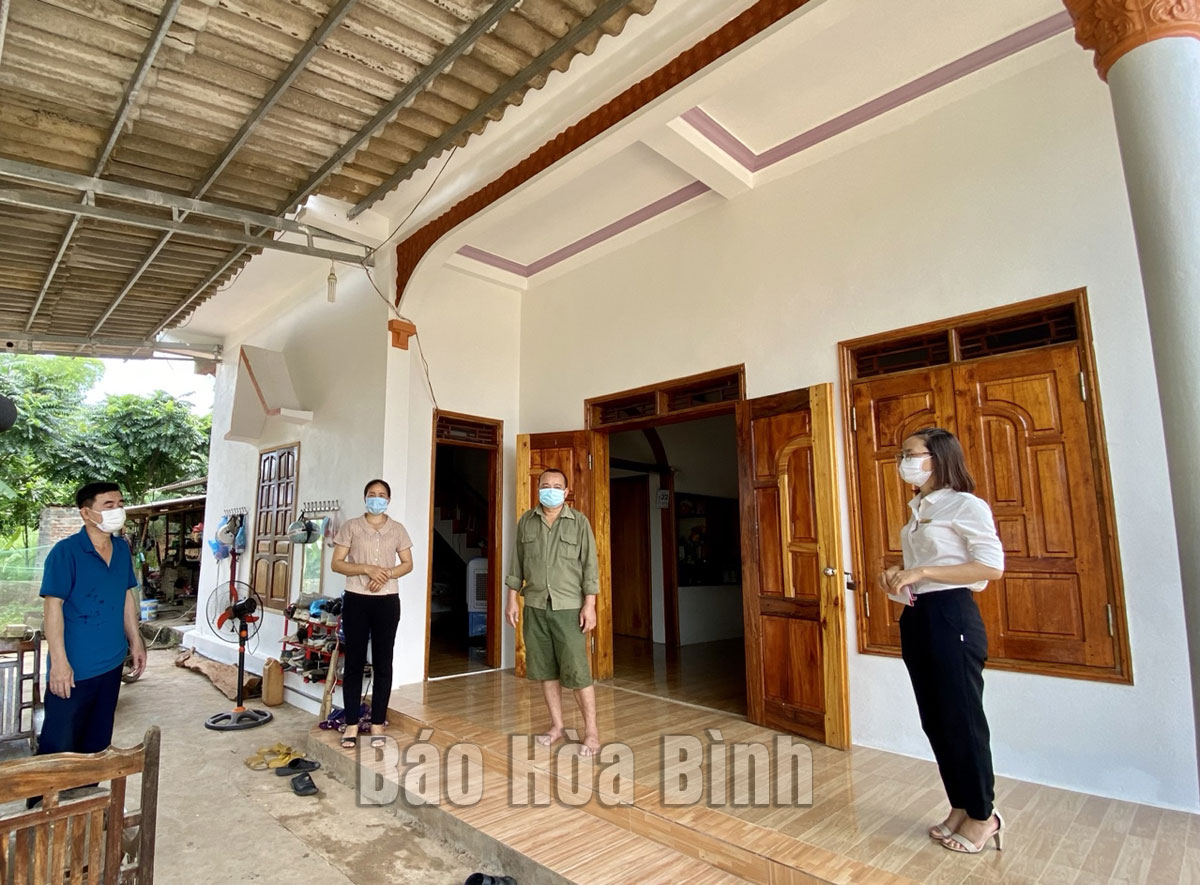
(HBO) – When switching from a zero COVID-19 approach to safe and flexible adaptation to and effective control of the pandemic, the role of community-based COVID-19 teams needs to keep improving.

Members of a community-based COVID-19 team in Muong
Voi street, Vu Ban township, Lac Son district check on health conditions of
local residents and remind them to file in health declarations when they show
symptoms suspected to be of COVID-19.
Daily tasks of the team include reminding residents to
seriously follow the "5K” message, regularly inspecting and handing down fines
on those violating anti-pandemic regulations such as failing to wear masks when
going out, and helping medical agencies track down people in contact with
infected persons.
Vice Chairman of the district People’s Committee Bui Van
Duong said the locality maintains 520 community-based COVID-19 teams with 2,196
members. They are the so-called extended arms of competent agencies in pandemic
prevention and control, such as discovering and monitoring people arriving from
other localities and those under quarantine in the locality. They also
mobilised the active involvement of the public and became a key force in the
effort.
Head of the city's health care office Bui Quoc Vuong said
the teams issue COVID-19 bulletins twice or thrice per day, play a key in
tracing down suspected infection cases, and assist families in buying
necessities while they are under quarantine.
The teams, comprising secretaries of Party cells, heads of
villages, public security and health care staff, and members of organisations
such as the youth union, war war
veterans' association, and elderly association, visit each household to remind
them about pandemic prevention and control measures, and immediately report
suspected infection cases to medical stations for timely testing and
quarantine, as well as illegal entries and violators of prevention and control
regulations./.
More than just an information technology teacher, Bui Van Nien is an inspiring figure who has nurtured the scientific curiosity and creative spirit of students in Vietnam’s ethnic minority communities.
Da Bac is the most disadvantaged mountainous district in Hoa Binh province, with ethnic minorities accounting for about 90% of its population. Over the past years, the district has mobilised resources to implement ethnic policies to improve the quality of life of local people.
In recent years, Hoa Binh province has consistently prioritised the protection, care, and education of children, particularly those from ethnic minorities and disadvantaged backgrounds, by creating a safe, healthy, and nurturing environment for their all-round development.
The Steering Committee for Tobacco Harm Prevention and Control of Hoa Binh province, in coordination with the Tobacco Harm Prevention and Control Fund, held a ceremony on May 28 in response to the World No Tobacco Day (May 31) and the National No Tobacco Week (from May 25 to 31). The event was chaired by Nguyen Van Toan, Standing Vice Chairman of the provincial People’s Committee and head of the Steering Committee.
Since 2021, the Center for Industrial Promotion and Industrial Development Consulting (CIIDC) under the Department of Industry and Trade has been implementing a school lighting model as part of the plan for using energy efficiently and economically in Hoa Binh Province in the pẻiod of 2021 - 2025. This model not only aims to improve the learning conditions and enhance the education quality, but it also promotes the message of energy saving, energy security, environmental protection and contributes to the goals of socio-economic development.
In the 2024 - 2025 school year, the entire Hoa Binh provincial education sector includes 520 educational institutions and schools. Among them are 13 ethnic boarding schools with 153 classes and 4,487 students. Four of these schools have met national standards, reaching 30.7 percent.



